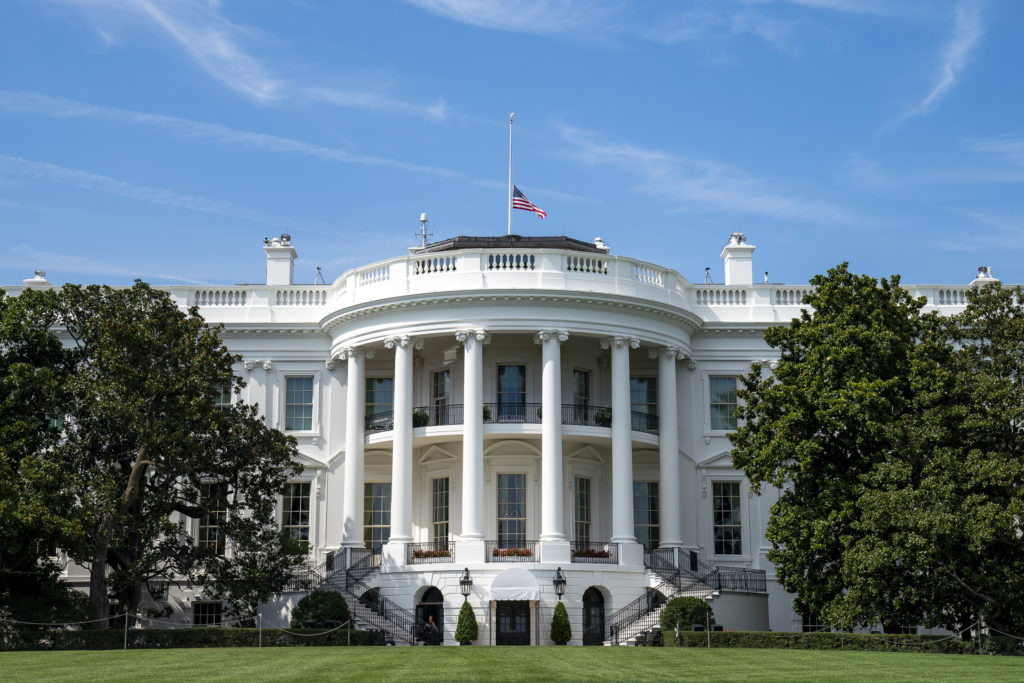Today's Headlines and Commentary
The U.S. imposed new sanctions on Russia in response to the poisoning of a former Russian spy and his daughter earlier this year in the United Kingdom, reports BBC.
Published by The Lawfare Institute
in Cooperation With

The U.S. imposed new sanctions on Russia in response to the poisoning of a former Russian spy and his daughter earlier this year in the United Kingdom, reports BBC. A State Department spokesperson said on Wednesday that the United States concluded that Russia “used chemical weapons or biological weapons in violation of international law, or has used lethal chemical or biological weapons against its own nationals.” Sergei Skripal and his daughter Yulia were exposed the nerve agent Novichok in the British city of Salisbury in March. Both have since recovered, but two other British nationals—Dawn Sturgess and Charlie Rowley—fell ill after being exposed to Novichok in June. Sturgess passed away as a result of the exposure on July 9. The Russian ruble took a tumble after the sanctions were announced, dropping to its lowest level since November 2016.
An airstrike by the Saudi-led coalition in Yemen hit a bus in a crowded market area, killing dozens of Yemeni children and injuring even more, according to the Washington Post. The coalition has launched a string of airstrikes in recent weeks in its fight against Houthi rebels. The head of the Red Cross delegation in Yemen reported that “scores [were] killed, even more injured, most under the age of 10.” The coalition released a statement on Thursday, saying the airstrike was “a legitimate military action.”
President Trump’s legal team rejected the terms of special counsel Robert Mueller’s offer to sit for an interview, reports the Wall Street Journal. Instead, the president’s lawyers proposed a counteroffer that limited the scope of questions Mueller could ask related to obstruction of justice. The counteroffer did express the president’s willingness to discuss any alleged collusion with Russia. The news comes as negotiations over an interview with Trump enter their ninth month.
The White House is in the process of writing an executive order that would allow the president to sanction states and foreign actors that interfere in U.S. elections, according to Post reporters who reviewed a draft copy of the document. The order lists a series of offenses that would qualify as interference, including “[i]nternet-based disinformation efforts.” The majority of the sanctions detailed in the order would be discretionary, allowing the president to decide which entities should be sanctioned and to what extent. Shane Harris, one of the Post reporters who saw the document, noted that the “draft order includes language apparently designed not to single out Russia for its 2016 interference.”
WikiLeaks founder Julian Assange may accept an offer to appear before the Senate intelligence committee, according to a statement from his lawyer, reports Reuters. Assange has lived in Ecuador’s embassy in London since 2012 in order to avoid extradition. The intelligence committee asked Assange to testify as part of the larger investigation into Russian interference in the 2016 presidential election. Assange’s lawyer said that her client was considering the offer, but his protection must be guaranteed.
The American Psychological Association voted against a proposal that would allow members to treat individuals detained at sites that fail to comply with international human rights laws, such as Guantanamo Bay, according to the New York Times. The vote followed a contentious debate that sought to overturn a 2015 policy that prohibits military psychologists from working at certain detention facilities.
ICYMI: Yesterday on Lawfare
Evelyn Douek analyzed two proposals to regulate technology companies that were recently released by U.K. and U.S. lawmakers.
Wenqing Zhao and David Stanton posted the latest SinoTech column on Google’s plans reenter the Chinese market and the implications in the NDAA for ZTE.
Jen Patja Howell posted this week’s Rational Security—the ‘Ask Us Anything’ Edition—in which Quinta Jurecic, Shannon Togawa Mercer, Tamara Cofman Wittes and Benjamin Wittes answered listener questions submitted on Twitter.
Email the Roundup Team noteworthy law and security-related articles to include, and follow us on Twitter and Facebook for additional commentary on these issues. Sign up to receive Lawfare in your inbox. Visit our Events Calendar to learn about upcoming national security events, and check out relevant job openings on our Job Board.





